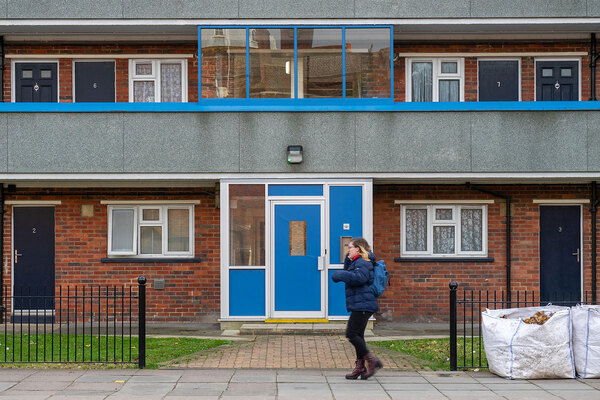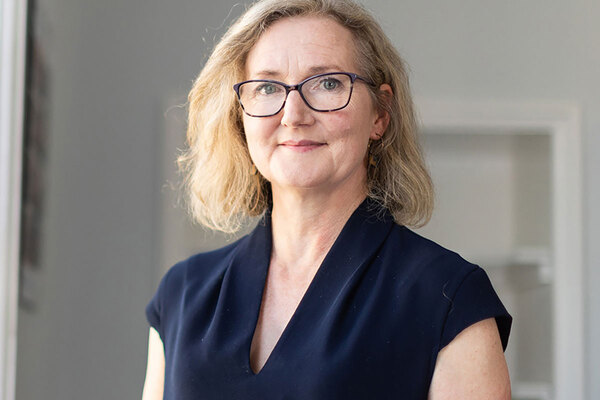You are viewing 1 of your 1 free articles
Institutional investment is ‘natural fit’ for social housing sector, says Homes England
A senior figure within Homes England has said there is a “natural fit” between institutional investment and the social housing sector, and said the agency’s priority is to diversify the type of capital being accessed by social landlords.

Fay Mitchelson, head of joint ventures at Homes England, told the Housing 2021 conference in Manchester today it was a “priority” for the government’s housing delivery agency to “increase the access to capital, the diversity of the capital, the stability of the capital” within the affordable-housing sector.
During a panel session on innovative funding models to deliver new homes, Ms Mitchelson said there was a “natural alignment” between the sector and institutional capital and that there are many “attractions” to using equity models, such as moving assets off balance sheets and creating new income streams through fee arrangements.
She said Homes England was attempting to “demystify both sides of the table” and was particularly interested in ensuring institutional capital can be used to fund the development of new supply, rather than “just taking supply that is already there”.
Earlier this year, Homes England invested £10m in a shared ownership fund set up by M&G, the large investor.
The fund is being used to forward fund a £500m pipeline of around 2,000 shared ownership homes being delivered in partnership with Hyde, with the homes owned by M&G, but managed and maintained by Hyde.
Earlier this year, Inside Housing reported that traditional housing associations are increasingly looking to enter into such deals, which would mean they own fewer of the homes they build.
Speaking on the same panel, Tayo Bilewu, investment director at Civitas Investment Management, said housing associations need to get better at ensuring the relationship they have with investors is “equitable”.
He said: “How does the sector...move away from looking at capital as being the saviour...and we are beholden to the dictates of the investor rather than dictating the terms of engagement?”
Civitas Investment Management describes itself as a “leading impact investor acting on behalf of institutions around the world”. It has focused investment on the specialist supported housing sector for adults with learning difficulties and disabilities, utilising a model that involves leasing properties on long-term deals to housing associations.
The Regulator of Social Housing has declared some of Civitas’s housing provider partners non-compliant.
When asked by Social Housing, Inside Housing’s sister publication, whether these regulatory judgements create a problem for investors looking at the sector, Ms Mitchelson said: “When we’re talking about innovative and new things, it creates this perception of fear. How do we manage? How do we work through the risks? And to be honest, that is a process of time and precedent and the market evolving.”
She added: “I think the activities that Homes England has been involved in today has demonstrated that, as the government’s housing accelerator, we have that unique role because we are often providing the assurance or the confidence around the sector – its stability and its future – so certainly, our involvement in transactions has been really to kind of target that space.”
Anne Waterhouse, interim chief executive at A2 Dominion, said: “There is billions of pounds in funding that has been successful and has delivered real outcomes for customers that are in housing need.
“There have been some challenging deals that haven’t worked and I think as long as we learn from those, that borrowers take some of that responsibility to really understand and work in line with the barriers that exist and also the frameworks that exist, I think we can see more successful continuing innovative models coming through in the sector.”










